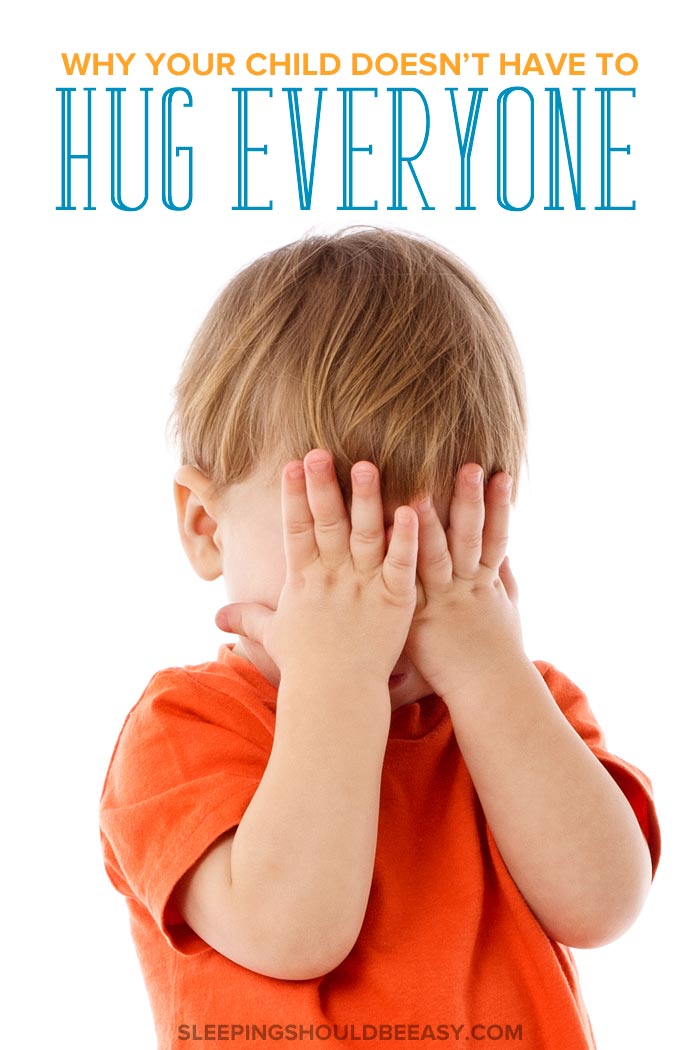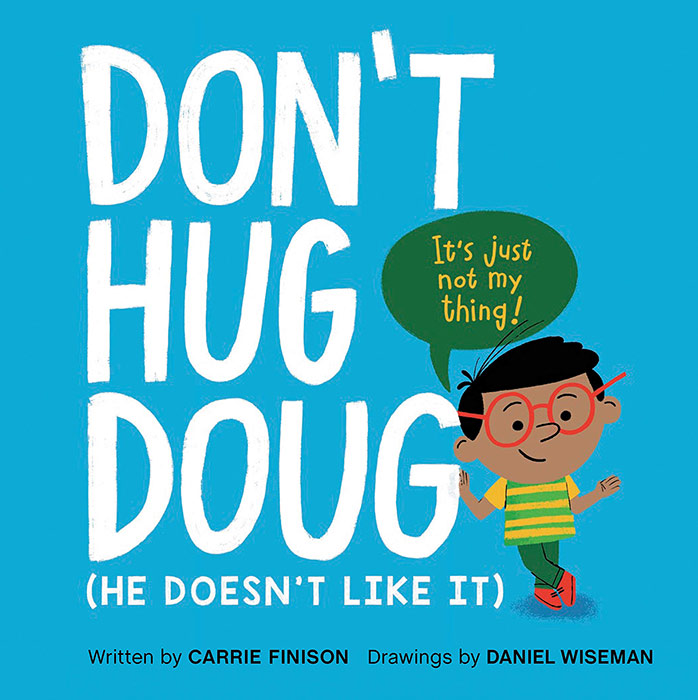3 Reasons Your Child Doesn’t Have to Hug Everyone
It might seem polite to have kids greet others, even family and friends, but here are 3 reasons your child doesn’t have to hug everyone.
 At a family gathering, a relative wanted a hug from my toddler, but he was in no mood. I didn’t force him to hug everyone, nor did I apologize for his shyness. Instead, I said, “Looks like you don’t want to hug right now. Maybe later?”
At a family gathering, a relative wanted a hug from my toddler, but he was in no mood. I didn’t force him to hug everyone, nor did I apologize for his shyness. Instead, I said, “Looks like you don’t want to hug right now. Maybe later?”
“Later,” he agreed. My relative, picking up the hint, requested a high-five instead, which he much preferred.
Table of Contents
3 reasons your child doesn’t have to hug everyone
For someone who was easily overwhelmed with overstimulation, the last thing my son needed was the discomfort of people wanting to hug and kiss him.
I may be the only one in my family who doesn’t force my kids to hug everyone in the room against their will, and here’s why:
Table of Contents
1. Forced hugging doesn’t respect your child’s space
Kids—especially little ones—can feel overwhelmed when entering a house full of people.
This is especially true for those who feel anxious in large crowds and new scenarios. Forcing hugs and kisses doesn’t help them adjust any better. It can even do the opposite, frightening and overwhelming them with their sudden lack of personal space.
They should know that they have a right to their personal space even among puckered lips and outstretched arms. Even if others think it’s rude or label them as shy. They may not be able to avoid the large crowds of people swarming to greet them, but at least they won’t have to hug them against their will.
Free resource: In The Power of Empathy, you can learn how empathy is truly the secret key that makes a huge difference in how we raise our kids. Imagine transforming your relationship with your child using the lessons you learn. Grab your copy below. You’ll also get my newsletters, which parents say they LOVE:
“Your articles are always inspiring. Keep up the good work Nina!” -Nidhi B.
2. Forced hugging doesn’t respect your child’s body
Kids should be able to say no—even to adults—as a way to respect their own bodies. We warn about inappropriate touching and stranger danger, then force physical touch when they don’t want to. We send mixed messages of “Just say no” with “Hug this man even though you don’t know him or want to give him a hug.”
They already feel like they have little say with authority figures—their bodies should be one of the most important aspects they can make decisions about, guilt-free. They should know that they have absolute control even if others want to tickle or cuddle with them.
3. Forced hugging isn’t genuine
I’m not anti-hugging. I actually love that my family is the hugging type and enjoy seeing my kids greet everyone. But when I was a kid, I honestly didn’t want to hug everyone. Not only did it feel like an obligation, but I also felt like some adults weren’t even that excited to greet me.
I want my kids to show manners and express genuine interest in those around them. Forcing hugs makes greetings an obligation rather than a genuine joy of seeing others.
Kids should also greet others how they want to. They might be fine with a simple hug, not a tickle-fest where they’re carried in the air and hugged for a long time.
How to encourage your child to want to hug
How do you encourage your child to want to hug while respecting his feelings and as well as others? Instead of forcing him to give hugs, here’s what you can do:
- Model the behavior. When you want him to say hi to everyone, it’s best to lead by example. With him in tow, greet everyone so he sees that saying hello is a pleasant experience.
- Hype up the crowd. On your way to a gathering, talk about the people you’ll see. “Remember how your aunt taught you that song about fingers and toes?” or “Grandma will be there—she visited us last week.” This way, he gets excited about the people he’ll see.
- Tell him what to expect. Describe what he might see once he arrives. “Lots of people will be there, and they’ll all come to the door when we walk in.” With descriptions, he can have a better idea of what to expect.
- Ask him first. Once he’s finally at the party and people are clamoring to hug him, ask his permission first. “Want to give your cousin a hug?” or “Let’s go say ‘hi’ to your aunt.” Make it known that he can always refuse (instead of making it sound like a command).
- Tell the truth. For the times your child doesn’t feel like hugging or engaging with others, say the truth rather than making up excuses. “Looks like he doesn’t want to give hugs right now. Maybe in a few minutes, he’ll be up for it.” Instead of, “Oh, he’s a bit shy…” or “He just woke up from a nap…”
- Offer an alternative. Giving alternatives offers your child a chance to say hello without hugging. Besides high-fives, he can also wave his hand, say “hi,” give fist bumps, or perhaps give a hug later when he’s in the mood.
Conclusion
Disclosure: This article contains affiliate links. As an Amazon Associate, I earn from qualifying purchases.
Trying to balance family traditions and hurt feelings with your child’s needs can be tricky, but he shouldn’t be forced to hug everyone. Doing so doesn’t respect his personal space. Forced hugs send mixed messages about consent and body autonomy.
And at the end of the day, he should want to hug everyone, not feel like he has to. You can encourage a genuine desire to greet and respect others without forcing him to hug against his will.
p.s. Check out Don’t Hug Doug by Carrie Finison, all about body autonomy and consent:
Get more tips:
- “What Would You Do?”: Questions You Need to Ask Your Child to Keep Her Safe
- How to Deal with Public Tantrums
- Why You Shouldn’t Tell Kids to Stop Crying
- How to Teach Toddlers to Share
Don’t forget: Join my newsletter and grab your copy of The Power of Empathy below:


